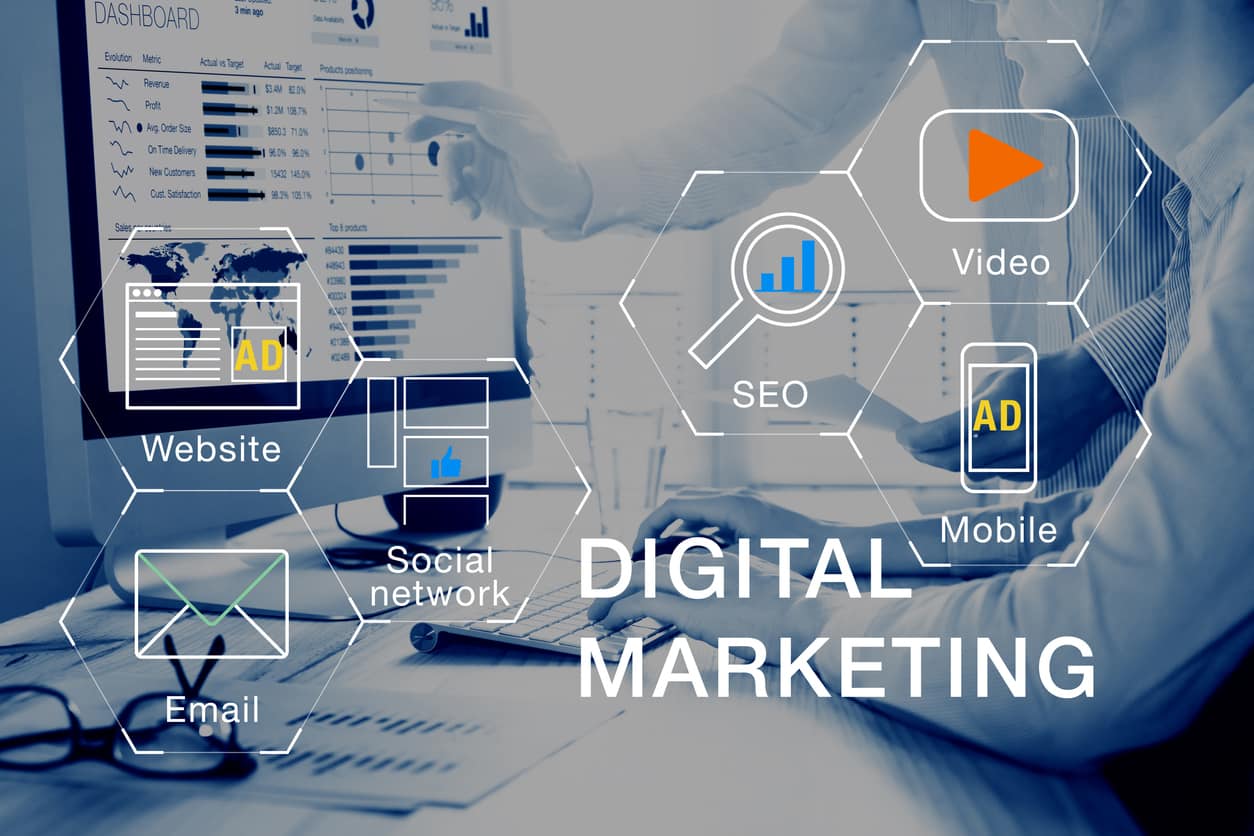Global growth has slowed to the extent that the global economy is perilously close to falling into recession. The United States, the euro area, and China are all undergoing a period of pronounced weakness. The resulting spillovers exacerbate other headwinds emerging markets and developing economies.-World Bank faces. Also, World Bank has adjusted its 2024 forecasts lower to 2.7% from an earlier prediction of 3% growth. Shocking right? During economic uncertainties like these, better marketing strategies will be the savior, and that’s why you need to up your strategies and marketing game. Let us know why and how!
Marketing has become an important factor in the development of economies worldwide. It is also considered essential for achieving social objectives. Marketing is now considered the most crucial activity in a business enterprise, whereas it was once considered the last activity at the development stage.
Organizations tend to respond to periods of economic uncertainty in one of three ways:
- By doubling down on their growth strategy to achieve market gains and outpace the competition;
- By cutting spending, reducing the size of their workforce, and putting a moratorium on new initiatives; or
- By striving to maintain the status quo until any potential economic headwinds are behind them.
Given the uncertain economy, it is essential to consider how your marketing plans will affect your brand’s health. After all, savvy marketing leaders know they cannot afford to stand still during these challenging times. You must pay close attention to your brand so your organization can emerge from this economic cycle in a strong position. So here are some tips for launching, marketing, and growing in a time of economic uncertainty:
- Explore economic impacts on your audience segments.
While the economy may or may not be in a recession, consumers are trying to navigate conflicting information and an unpredictable economic environment. As a marketing team, you should think through your customers’ psychology. How might different segments respond to uncertainties as it designs messaging that reflects their key priorities during this time?
Companies of all sizes can achieve greater customer loyalty by demonstrating empathy. The “Harvard Business Review research suggests the top 10 most empathetic companies increased their monetary value more than twice as much as the bottom ten companies and generated 50% more earnings.”
Framing your company’s value proposition with empathy is the most effective way to build an authentic relationship with your customer. This will inspire them to trust you as a provider of goods or services and a general resource. Research has shown that a company’s ability to empathize with customers is key in connecting and establishing trust. Customers will be more likely to remain loyal and return to your brand long-term. If you want to make a sale or generate content for your website, framing your company’s value proposition with empathy is the most effective way to build an emotional connection with your audience. This will inspire them to trust you as a provider of goods or services and a general resource. Some questions you can ask:
- Is your messaging aligned with your audience’s current priorities and interests?
- What about these priorities and claims that an unstable economy might shift? What has not changed?
- How can you position your products and services to meet these new challenges?
- Adapt your brand story.
Regardless of the economy, the key to branding is showing up in front of your target audience and delivering a message that compels them to act. During tough economic times, look honestly at your marketing materials and strip away anything that doesn’t directly support your value proposition. If it doesn’t feel right for this moment, make strategic adjustments such as focusing on one core benefit instead of several or removing elements of branding (like logos) that can be replaced by other elements and make strategic adjustments. And, for your brand to stay relevant and more interactive with your customers, it is important to take constant feedback, surveys, etc., as talking to an informed customer adds more value to your brand and makes your brand more trustworthy.
- Refine your marketing experiences.
When cutting back on marketing expenditures, it is wise to focus on building your brand’s foundations. When you generally use content daily to attract and retain customers at various stages of their lifecycle, you tend to ask yourself the following questions:
- Are you still highlighting the right products, services, and value propositions?
- Is your bank of content still tracking with the most important use cases and audience segments?
- What has changed about your business since you refreshed your lifecycle marketing content?
After you have completed a review of your existing content, you can prioritize and develop additions and updates. In doing so, you will have created a set of resources that use your most up-to-date understanding of your audience to generate conversions.
- Measure your performance—and act on what the data tells you.
It’s difficult to foresee the future. Studying past periods of economic downturn can teach you what not to do during difficult times. However, research shows that remaining steady in your strategy, avoiding reactive decision-making, and planning for the long term will serve your business well. As your business experiments with different marketing tactics, revenue streams, management systems, and business models, measuring and analyzing your efforts are key.
For startups, building and maintaining a set of performance metrics is critical. As you establish your foothold in your market, gain increasing brand visibility, and drive toward revenue growth, you must continue to gather as many signals as possible from your key audiences that tell you where you’re hitting the mark and where you’re losing customers.
During any economic climate, it’s important to track metrics around engagement and conversion. However, when the economy takes a downturn, everything you think you know about your audience–and what converts them–is liable to shift. This current period of economic uncertainty means it’s important to ensure your performance tracking is effective and that your team regularly analyzes your data and mobilizes actionable insights. Every day is a new day for businesses when the economy is unstable. You should use your marketing data to ensure you operate with the most current understanding of your audience.
Conclusion
By tracking and analyzing the results of your marketing strategies, you can keep an agile mindset and adjust your efforts as necessary. This is especially important in an unpredictable economy; whether you’re focusing primarily on your marketing plan or the finer details of your marketing efforts, staying nimble, learning from performance data, and adjusting when necessary will help you build for the long term.
To do so, it is important to hold the key skills and knowledge you can learn from the Advanced Digital Marketing and Growth Strategies Program. It helps you get in-depth knowledge about Customer Segmentation, Customer Centricity including Implementation, Opportunity and Future Outlook, Customer Acquisition Costs, Customer Lifetime Value Achieving Profitable Growth Through CLTV, and more. It helps you understand the organization’s and the customer’s perspectives.








